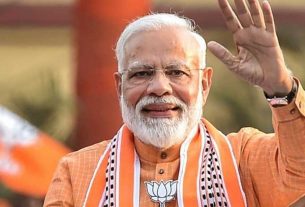Kerala has the dubious distinction of reporting the first three cases of the coronavirus disease (Covid-19) in India. But the state government handled the first two phases in an exemplary manner, setting a template for political leadership and the global health community. Kerala is now bracing for the third round of the coronavirus pandemic, with people returning to the state from foreign countries, many of which are Covid-19 hotspots. Therefore, many of the returnees are likely to be positive.
But I am clear about one thing: When Keralites return from abroad or other states in the country, we have to embrace them, unreservedly. But things cannot be as before.
In the first two phases, around half a million people arrived at airports and railway stations, crossed border roads and forest paths that have no checkpoints, resulting in 512 positive cases. Of these, 70% are from abroad and 30% contracted the virus through contacts. Checking the returnees is straining the state’s financial and human resources. However, the state government is trying its best to keep them under surveillance and, thereby, protect others from getting infected.
Chief minister Pinarayi Vijayan has been involved in the management of the pandemic from the word go. Kerala is also fortunate because it has a dedicated administration and committed health workers, and most people have behaved in an extremely responsible manner. But when a large number of people are kept under surveillance in homes and institutions, it becomes impossible to take care of everyone and ensure the day-to-day management of non-Covid-19 diseases.
The government has contacted 4.3 million people, and their condition is monitored daily by the control room. We have also to ensure that patients, including the ones with lifestyle diseases, take daily medications. Drug delivery plans, using the non-communicable disease control wings in the department of health, were started during the lockdown. Police and firefighters have also helped in delivering medicines. Heart transplants were done despite the shutdown of coronary therapies and operations in many other states. Kerala’s involvement in mental health has been praised by the Centre and other states. Over 8,000 counsellors have been helping more than 0.8 million people for various psychological ailments.
In the third phase, the state’s challenge is two-fold: Reduce the spread of contacts, and therefore, unrestricted access to cities and villages in vehicles will pose a serious problem; and ensure that all of those who have returned undergo preliminary tests. Sending them to observation centres is no easy task. Therefore, the government has set some restrictions on the number of arrivals by land, sea and air while arranging for the police, revenue and health departments and volunteers to help test the maximum number of people each day.
The state’s focus in the third phase is on the category that is most likely to be easily infected, and the most likely to be fatal. A large scheme has been planned to exclude elderly persons, pregnant women, small children, persons with disabilities and co-morbidities from the coronavirus-affected areas. Besides the health, police and social justice departments, anganwadi and accredited social health activists and volunteers are in contact with these cohorts.
A national lockdown and closing the borders can help prevent the spread of Covid-19. Yet, no country can keep daily activities in limbo for too long. The shortage of food, job losses and stagnation of development activities can spell collective devastation. Kerala is also planning to relax the regulations, without adversely affecting agriculture and industry.
The state also needs to be on guard against rumour-mongers and naysayers. I am hoping that the never-say-die spirit of the people from Kerala will prove up to the task of facing down the third phase of the invidious virus. Today, we are in a better position compared to many other states. The interventions we made with great precision have helped to reduce the spread of the virus and mortality. But this should not make Kerala complacent against a dangerous and invisible enemy.




